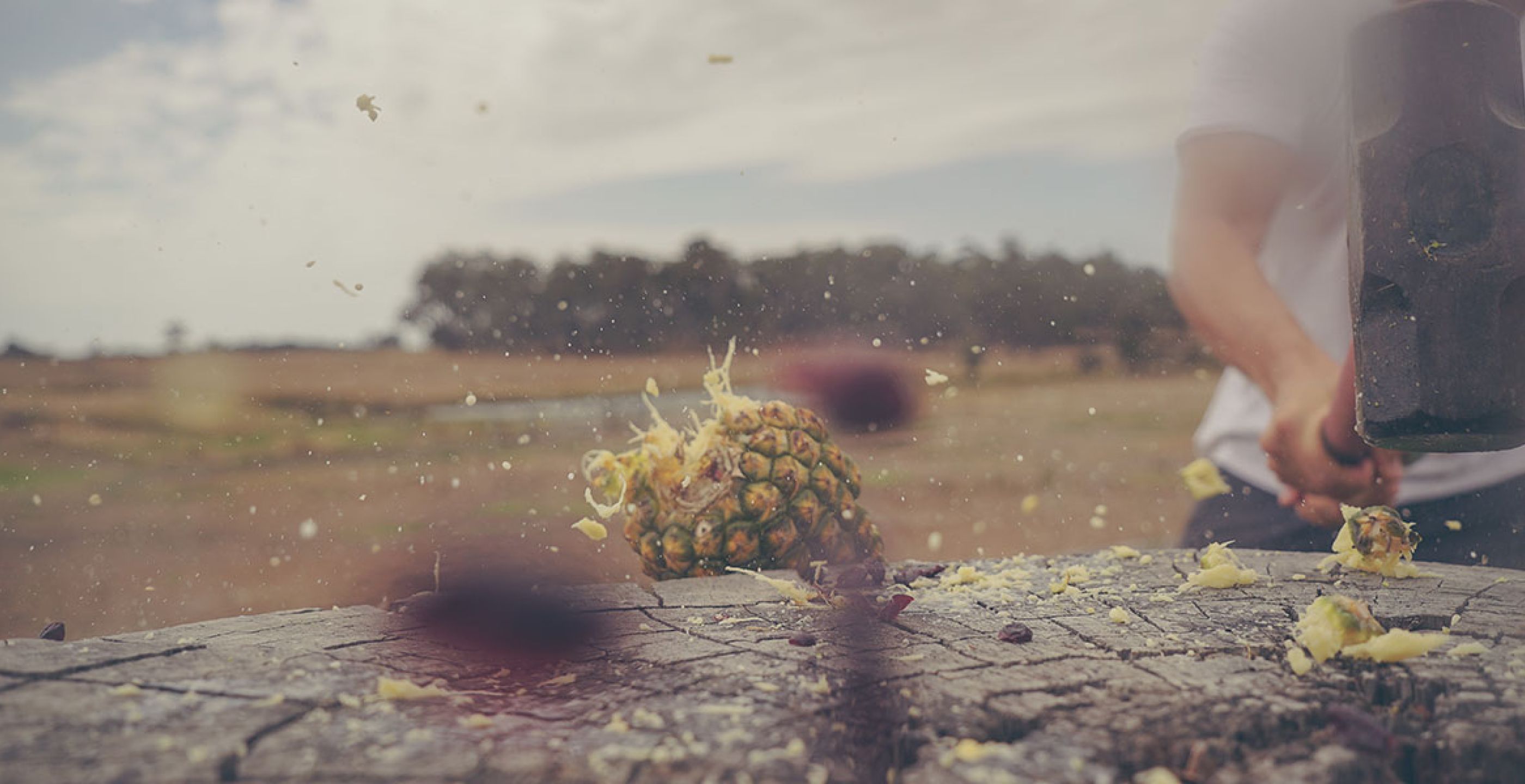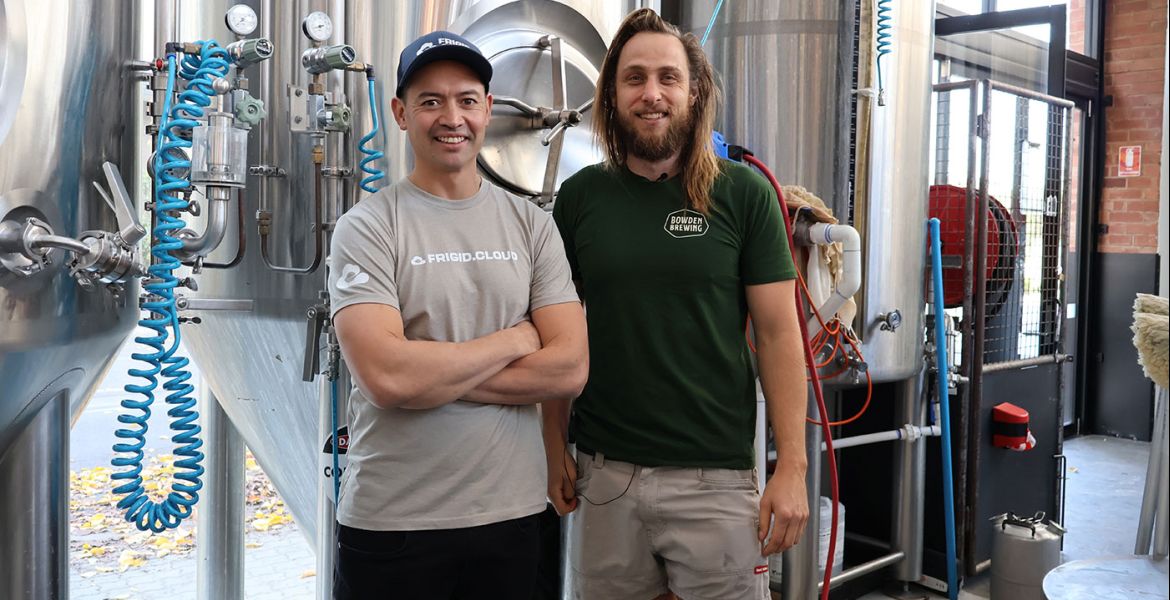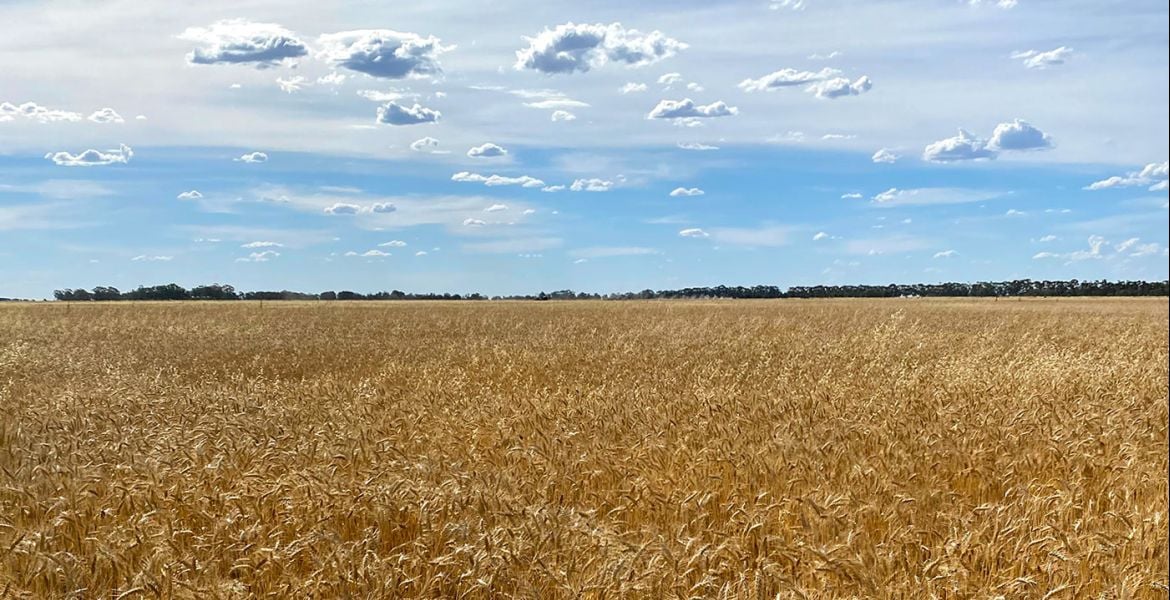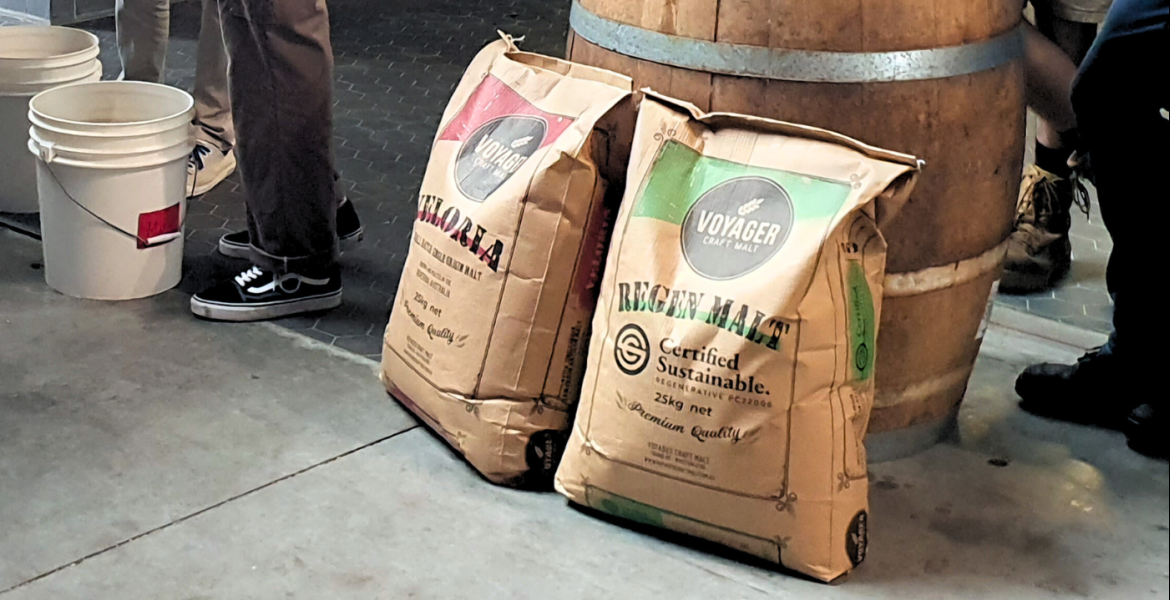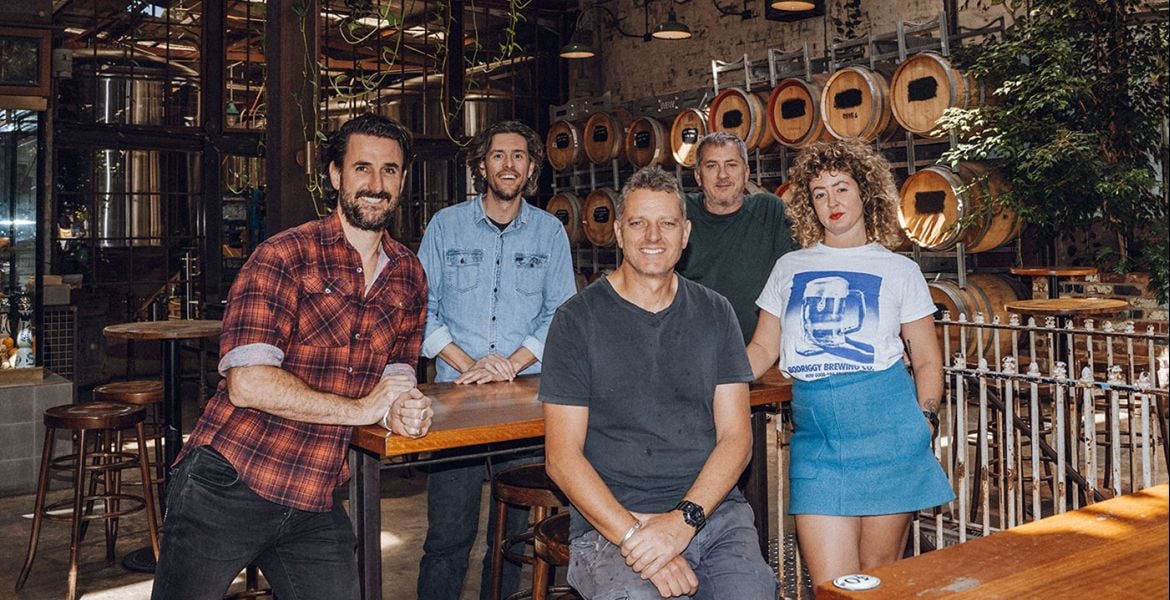Every year in Australia, we waste a truly staggering amount of food. More than seven million tonnes of the stuff is wasted – around 300kg for every single one of us.
That’s not to say you personally are throwing away a few hundred kilos of leftover fried rice or forgotten spinach; this figure includes up to 40 percent of all fruit and vegetables that never even get the chance to start rotting in your crisper because they don't meet the cosmetic standards to be sold at a supermarket.
Although wasted food costs the Australian economy more than $20 billion each year, the economic impacts of food waste are not the only concern. Wasted food is a waste of the energy, nutrients and water required to produce and transport it in the first place.
Water is precious in an arid country like Australia, where the unique topography and climate mean we are prone to periods of water instability in the form of devastating periods of drought interspersed with severe flooding. Of Australia’s total water supply, 70 percent is used for agriculture and food production and a quarter of that is used to grow food that is ultimately thrown away. This means that, in effect, 18 percent of all the water used in Australia is used to produce food that is never consumed.
Food waste is also deeply interconnected with one of the main driving factors for water and climate instability in Australia: climate change. Decomposing food produces methane, a gas with a greenhouse effect that is many times more potent than carbon dioxide; it is estimated that food waste is responsible for around eight percent of global greenhouse gas emissions. That's more than the entirety of India’s emissions, and that nation of around 1.4 billion people is currently third on the list of the largest carbon emitters on the planet.
Sure, the beer industry isn't responsible for that much waste – or necessarily able to solve such a gargantuan and complex challenge – but, nonetheless, breweries in Australia are playing a small part to save food from landfill and raise awareness of the issue in the process.
Melbourne-based Local Brewing Co grew out of a shared desire between five friends to use beer as an avenue to help feed struggling members of their community; for each pack of beer or pint they sell, a meal goes to someone in need. Those meals are made possible through a partnership the brewing company has formed with SecondBite, and brewing company co-founder Nick Campbell says it's also through SecondBite they connected with farms producing surplus fruit.
“[SecondBite has] a network of Australian farms that have a significant amount of waste each year due to the look and size of fruit," he says. "This fruit is still usable for production for our beer, so we are solving a few problems at once.”
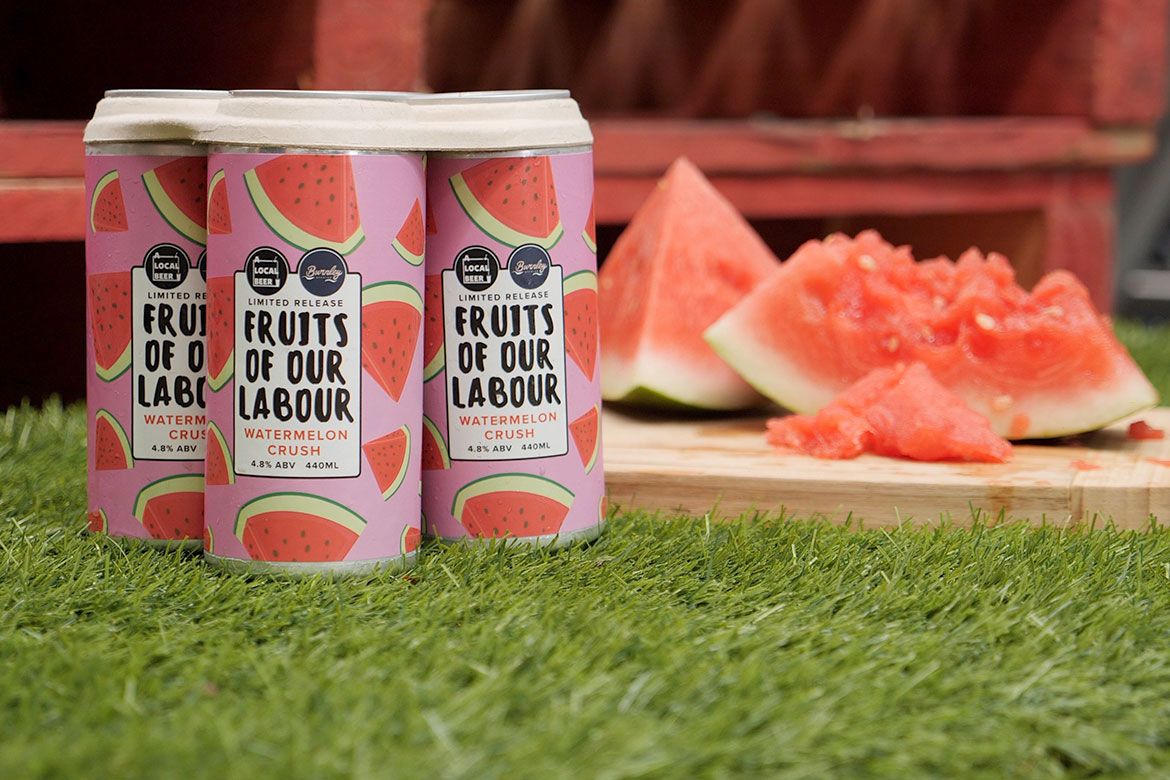
Local Brewing Co launched their Fruits of our Labour series last year as a collaboration with Burnley Brewing, which is also where they make their beer. To date, the series has featured fruits including mango, watermelon and banana alongside sourdough destined for landfill.
“Bread products at a macro level have experienced some of the highest levels of wastage from the grocery and wholesale sector – with a short shelf life before they spoil," Nick says. "As a result, we have partnered with a few Melbourne’s most well-known artisan bakeries, including Phillippa’s Bakery and Cobb Lane, that experience regular production surplus.”
Along with giving food destined for the tip a second life, Nick hopes their efforts will spark conversations in their community and help bring about change.
“The team wanted to highlight the issue of food wastage and the energy intensive nature of our industry to build greater social understanding around sustainable solutions," he says. "By utilising surplus food in our brewing, we can reduce waste and deliver meals to those in need through SecondBite; we hope that these initiatives will inspire others to challenge the status quo.”
Over in Western Australia, Beerfarm's foray into waste fruit began under much more sinister circumstances.
In September 2018, news began to filter out of Queensland that needles were being found in strawberries purchased at supermarkets. What we now know is that one person’s decision to contaminate seven strawberries spiralled into a nationwide scandal of almost 200 reports of contamination with multiple alleged copycats and hoaxes; at one point, Queensland Police pulled dozens of detectives away from regular duties to help with the investigation.
The effect on the strawberry growers of Australia was catastrophic; it’s estimated more than 100 tonnes of strawberries had to be dumped as a result of the scare, and a large portion of that occurred in Western Australia.
At the time, Beerfarm reached out to local growers and created a strawberry sour using tonnes of the doomed fruit. That single beer led to the creation of a new series for the Metricup brewery, where head brewer Josh Thomas says the experience inspired them to launch their Save The Harvest campaign to not only make beer with fruit destined for the tip but also to highlight the issues facing Australian farmers.
“We now work on building relationships directly with farmers who are affected by wasted fruit and tend to have an abundance going into compost heaps or as animal feed," he says. "If there is a specific industry struggling with moving the fruit, we also try and ensure we are helping those businesses out.”
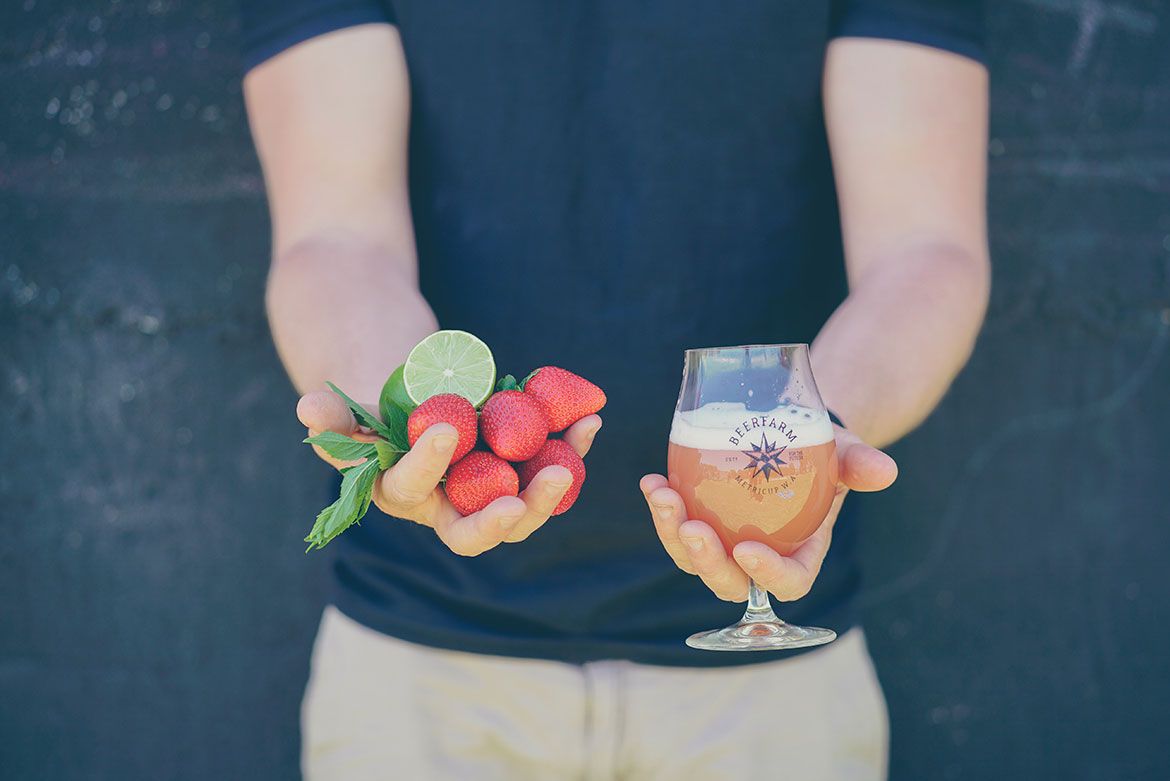
This approach has seen the brewery – one with plans to open a second Beerfarm in New South Wales – branch out into brewing beers with overripe pineapples from tropical north Queensland as well as ugly, unloved watermelons. Josh says using wasted fruit doesn't just give it another life but has unexpected benefits come brew day too.
“Apart from reducing waste and supporting farmers, ugly or even older fruit can be very beneficial to us in achieving the right balance when making fruited sours," he says.
"Many varieties of fruit tend to have more flavour and sugar when they are slightly aged; they can also be easier to process, which at times can also result in a higher yield. For example, when we make the [Pineapple Sour], we actually let the pineapple sit for a couple days; they are just about on the cusp of going off prior to processing – this makes them easier to juice and also brings out a more sweet and full-flavoured pineapple character assisting in the balance of that sharp acidity.”
Back on the East Coast, Topher Boehm of Wildflower Brewing and Blending in Sydney’s Marrickville is no stranger to utilising waste products in his beers. In the five years since opening, Wildflower have produced a wide array of wild and wonderful beers using unwanted produce: bread, hail-damaged fruit, roadside apples, and just about every type of grape by-product produced by the wine industry have ended up in the barrels of one of Australia’s most innovative producers of wild ale.
Even within the operation, Topher has been keen to experiment with his own waste foods, producing beers made with fruit he’d already used two or even three times previously. His latest project, however, is his largest to date and one that's driven by a particular level of passion.
The bushfires over Australia's 2019/20 summer had an almost incalculable impact on communities and industries throughout Australia, whether through lives lost, homes destroyed or industries left without products or customers. Wine-growing regions were hit hard, with some vineyards destroyed completely and others that escaped the direct effects of the fires ending up with heavily smoke-tainted and effectively worthless crops.
This was the case for Bryan and Jocelyn Martin of Ravensworth Wines, whose vineyard is situated at Murrumbateman, about half an hour north of Canberra. Though their vines were untouched by fire, analysis of the ready-to-harvest grapes showed a level of smoke taint that was quite literally off the scale.
When Bryan mentioned this to Topher over dinner, a plan was hatched on serviettes that evening to save the entire harvest by turning those grapes into beer, and the resulting Bright Side series launches this week.
It features five unique beers showcasing different Ravensworth varietals. Each beer in the series uses a base of Wildflower Gold and one dollar from the sale of each bottle will go to bushfire relief and prevention efforts against future fires.
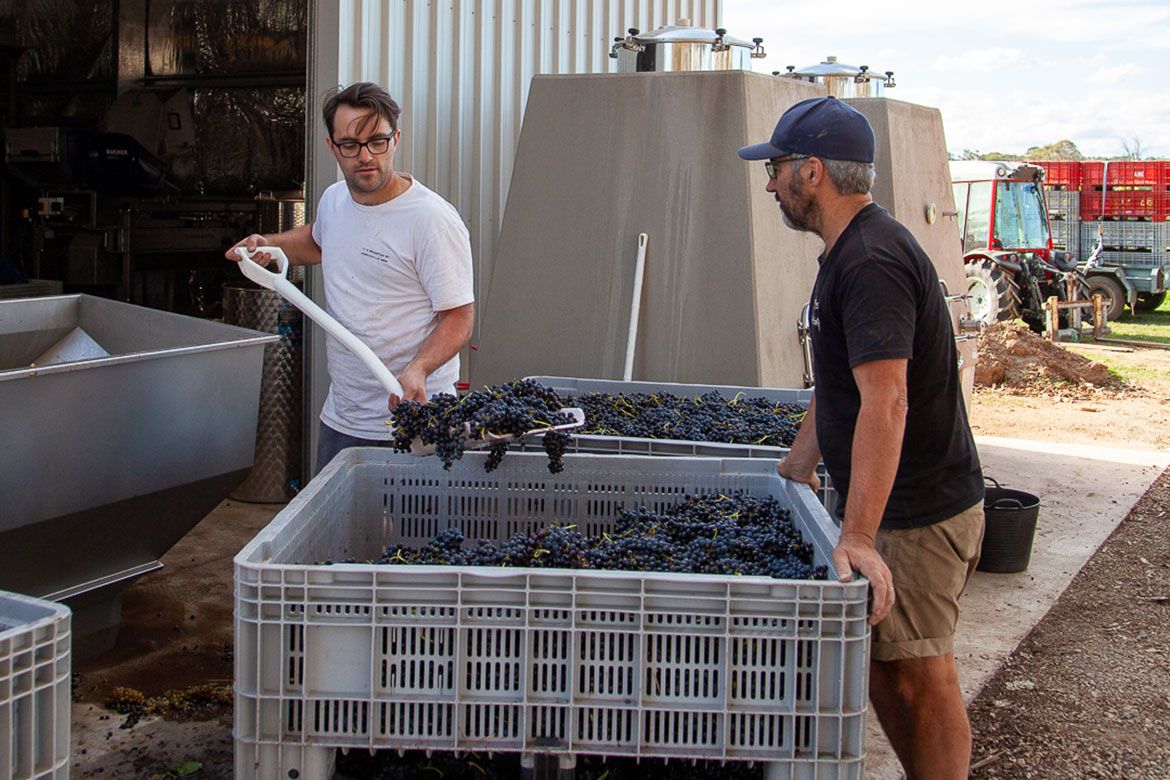
“I hate waste and I love giving grown produce a second or third life, as can be seen in many of our collabs," Topher says. "Bright Side is an extension of that: adding value to a crop that is seen by an entire industry as useless trash. We embarked on this project to experiment further with smoky fruit and challenge ideas on worth – what is worthy of being used and what is wasted?”
Topher says by utilising smoke-tainted grapes in beer, their aim is to demonstrate the fruit still has value and, with bushfires the size and intensity of 2019/20 likely to become more frequent in a world of increasing climate instability, winemakers will have to learn to survive in a world where smoke tainted harvest is an ever-present risk.
“We hope Bright Side will help Ravensworth recover a portion of the cost of the 2020 harvest with the financial burdens and potential incomes shared equally between us,” Topher says.
Solving the huge amount of food waste we produce might not be an issue single businesses can overcome but it's through strong ties with their communities and producers that the likes of Local Brewing, Beerfarm and Wildflower are able to build further value into agriculture.
As Topher puts it: “I'm not under the impression that this project is going to shift global greenhouse emissions, however, I am partial to the idea that big problems are solved only by millions of small solutions.”
To read more about the efforts of Australian breweries aiming to brew more sustainably, you can find other entries in our Going Green series here.
The Bright Side beers are launching on May 7 and Topher and Bryan are hitting the road throughout May for a series of parties to chat about the collaboration. Details of each event and bookings can be made here.
The photo of Topher and Bryan is by Sam Boneham, who can be found on Instagram here.



